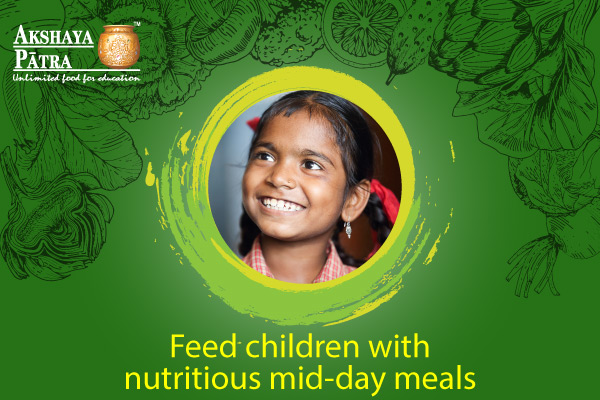Charity donations in the form of Corporate Social Responsibility (CSR) channelise resources in the direction of vital causes led by charitable organisations in India. CSR is no more a dreary meaningless formal exercise conducted by companies to show on paper. It’s becoming an active way to give back to the community and has helped several NGOs in India get resources for their work.
The two important Sustainable Development Goals that are crucial for India are (i) Zero Hunger and (ii) Quality Education. Akshaya Patra, an NGO in India, has a relevant vision. The organisation aims at feeding children in India while also ensuring that they go to school. This NGO provides wholesome lunch to school children in India with an objective of bringing them back to education.
Thus organisations looking for making a positive contribution in the SDGs have much scope in joining hands with Akshaya Patra. Here are some of the ways through which corporate organisations may begin to contribute for the cause:
- Strategic philanthropy through charity donations
- Cause-marketing initiatives
- Events and sponsorships
- Innovations and project solutions for children
Akshaya Patra has corporate partners such as Infosys, The Landmark Group, General Industrial Controls, the Jewellery Channel, Hindustan Petroleum, and more who are helping children in various parts of the country in getting nutritious meals in schools.
In India millions of children are on the brink of becoming victims of malnourishment because of inflation. According to a recent report by UNESCO, 17.7 million children in India are out of school. Organisations like Akshaya Patra are directly addressing these challenges by actively contributing in the cause of incentivising education.
Charitable organisations in India need not only partners for charitable donations but also companions in devising strategies for addressing complex problems. Akshaya Patra has been benefitted by the CSR initiatives of many such corporate partners who have helped the foundation at several levels from charity donations to volunteering, donating kitchens to helping in the delivery of nutritious meals.
And this contribution has paid off over the years. Akshaya Patra now has the world’s largest NGO-run mid-day meal programme serving wholesome lunch to over 1.6 million children in 13,636 schools across 12 states in India. Its state-of-the-art kitchens have won several awards for innovation and have been widely studied around the world. But most of all it’s the people who take part in CSR initiatives who find it so fulfilling to be a part of such a cause. Hundreds of volunteers from several corporate organisations willingly and happily lend a helping hand in serving meals or helping at other stages of the programme.
Many organisations choose to contribute by event sponsorships and help us organise meaningful events involving more people to understand this cause. Akshaya Patra offers many CSR opportunities to corporates who are willing to contribute for the future of this country. Get involved today.




